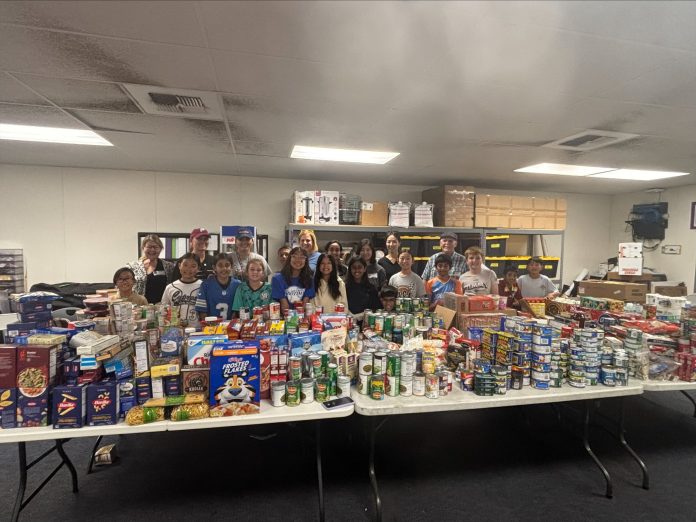
As the nation prepares for the traditional fall harvest, food banks everywhere stock up as communities take stock of those within their communities who face food insecurity.
This year, however, because of unique circumstances, the problem of food insecurity has become acute, and local nonprofit officials say they are feeling the pinch.
Coming on the heels of a government shutdown, funding for the U.S. government’s supplemental food program has run dry. Local food banks have reportedly seen a huge increase in the demand for food assistance.
Anne Mallari, CEO, WeCare Foundation in Los Alamitos, says food insecurity is not limited to big cities and does exist locally.
“It’s not just big cities that are experiencing food insecurity,” she said, and this year, officials have witnessed a dramatic rise in the demand for food assistance.
“We definitely see an uptick in response to the shutdown,” said Mallari. “People are worried and they’re not sure whether their benefits are going to be stopped or reinstated,” said Mallari.
A former elected official in the City of Cypress, one of the area’s wealthiest cities, said on Monday that at least eight (8%) percent of the population there faces food insecurity.
Put another way, that’s approximately 4,000 people living in Cypress facing food insecurity.
Moreover, Mallari said there are thousands of families in Los Alamitos (7%), Seal Beach (4%), and La Palma (5.4%) who are feeling the threat of hunger and suffering from varying degrees of food insecurity.

“They’re really looking for how they’re going to be able to feed their families,” she said. “They have challenges with food insecurity and challenges around SNAP (Supplemental Nutritional Assistance Program),” the WeCare official said.
Already, said Mallari, two food drives are underway and hundreds of people have responded to the “Amazon Wish List,” sending hundreds of packages of food to their storehouses.
Mallari was the guest of Margaret Landell Elementary School in Cypress this week to accept food collected by the 600 students during the school’s second annual food drive.
George Pardon, who, along with his wife, Lynne, was honored last week by Cypress officials, started the Landell (attended by their grandsons) food drive last year.
Its results were impressive, said Pardon, creating an impromptu system that exploded into a harvest of plenty given by Landell students.
“Last year, I’d go to every classroom and haul all the food over to the PTA room and sort it out,” said Pardon. “This year, the student council’s group goes around all the classrooms, gets the food, and brings it to the PTA room,” he said.
Vanessa Freedman, Principal at Landell, confirmed they added the school’s food drive last year through the PTA.
“We have an agenda to push kindness to our students,” she said, “making them understand that small acts of kindness can have a big impact in our community.”
Through the food program, she said, students are becoming aware that “they are making a difference. This is a great opportunity for the students to see their direct impact on the community,” she said in a brief interview with ENE.
In addition, Pardon said he was teaching the kids how to make sure the food was still good.
“I’m teaching them how to read expiration dates, how to sort the food, and these kids… they’ve just done an incredible job,” he said.
Pardon thanked the school for adding a food drive to their Red Ribbon Week activities. “If we can prevent drug abuse and do what we can to make sure no one goes hungry, it’s a good thing.”
“Just imagine a community with no drug abuse and where no one goes hungry, just try and imagine that,” he said.
“We incorporated it last year, and it went well. We incorporated it again this year, and it’s just been overwhelming,” the school volunteer said. “Just imagine what we can do as a community,” he said.
The community is showing up to help, said Mallari.
Landell students alone collected 2,000 pounds of food that has already been moved to the nonprofit’s warehouses,” she said
“People are stepping up,” said Mallari. “They are really responsive when they hear local community members are at risk of going hungry,” she said.
“We live in a wonderful community with people who want to help,” she said, “and they really are stepping up when they know that there’s a need, and if they have a way to make a difference, I think they do… they really do,” said Mallari.
“Nobody should be hungry in this community,” she said. “Nobody.”